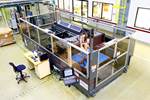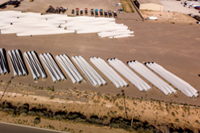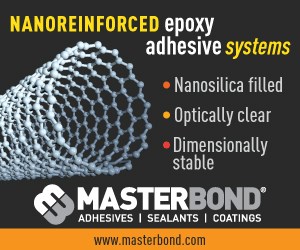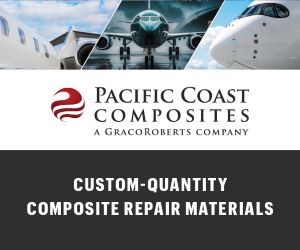New NCC research proves recycled composites can be used in new industry applications
EOL composite project successfully extracts carbon fiber from Airbus A320 vertical tail planes via pyrolysis. Reclaimed fibers will be processed and configured for an eventual cross-sector demonstrator.
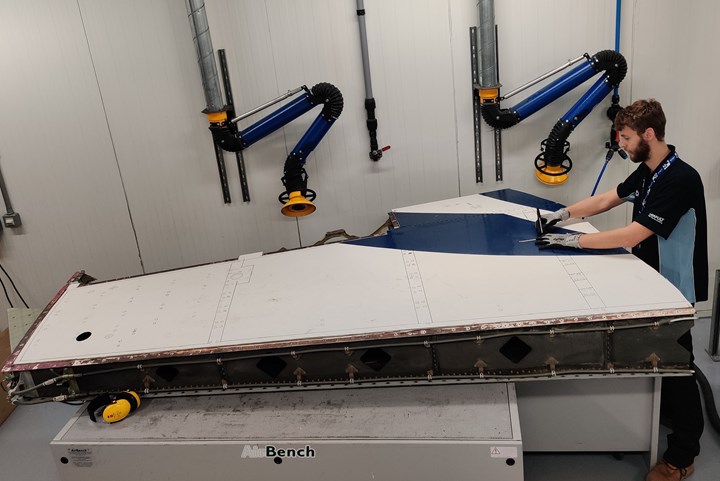
Carbon fiber-reinforced polymer (CFRP) sections being extracted from an Airbus A320 vertical tail plane. All photo credit: The NCC
Ground-breaking research being conducted by the National Composites Centre (NCC, Bristol, U.K.) is said to be proving that composites can be recycled at end of life (EOL) for use in new industry applications, providing solutions for the challenge of composite waste and reducing the environmental impact of advanced materials. The project is being conducted by the NCC in collaboration with a cross-sector group composed of Network Rail (London, U.K.), Airbus (Toulouse, France), Shell (The Hague, Netherlands) and Gen 2 Carbon (Coseley, U.K.) as part of the NCC’s Core Research Program.
Said to be the U.K.’s world-leading research center for composite materials, and part of the High Value Manufacturing Catapult, the NCC’s research aims to demonstrate the recycling of EOL composites, and increase industry confidence in the subsequent use of the non-virgin materials in second-life applications.
According to the NCC, the project has successfully extracted carbon fiber from two Airbus A320 vertical tail planes that had reached the end of their service lives, using a pyrolysis process. The reclaimed fibers will now be processed and configured into a fabric format that can be used with liquid resin composite manufacturing processes, the NCC says. The new material combination will be assessed and characterized for its mechanical performance, before being used to manufacture a wheelchair ramp against design criteria from the rail sector.
The demonstrator is expected to show the cross-sector application possibilities for EOL composites, with the learnings from this case study being taken forward and transferred to other products in sectors such as construction, rail, automotive and more.
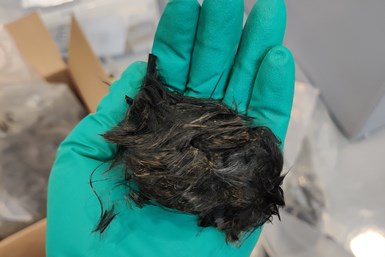
Recovered carbon fibers.
“The NCC is at the forefront of the use of advanced composites, working with industry to anticipate the future needs and applications across the sectors,” notes Dr. Enrique Garcia, CTO at the NCC. “The diverse consortia involved in this project highlights the near-term challenges being faced across a number of industries, and the importance of our work to find sustainable solutions for EOL composites. This initiative is successfully developing the technologies required to overcome these challenges, paving the way for a new supply chain of recycled composites, allowing more industries to make use of their unique, beneficial properties at a lower cost.”
The Core Research program is a cross-sector initiative involving the NCC’s Member organizations that are said identify the biggest challenges currently being faced by industry and solves them through collaborative research and development.
In partnership with the Centre for Process Innovation (CPI), the NCC also leads the Sustainable Composites initiative. Through this program, the NCC works with companies of all sizes to create a more sustainable future using the benefits of composite materials and applications. Any organization with an idea or challenge can contact sustainable.composites@nccuk.com to talk to its specialists.
Related Content
-
Materials & Processes: Composites fibers and resins
Compared to legacy materials like steel, aluminum, iron and titanium, composites are still coming of age, and only just now are being better understood by design and manufacturing engineers. However, composites’ physical properties — combined with unbeatable light weight — make them undeniably attractive.
-
Bio-based acrylonitrile for carbon fiber manufacture
The quest for a sustainable source of acrylonitrile for carbon fiber manufacture has made the leap from the lab to the market.
-
Natural fiber composites: Growing to fit sustainability needs
Led by global and industry-wide sustainability goals, commercial interest in flax and hemp fiber-reinforced composites grows into higher-performance, higher-volume applications.


